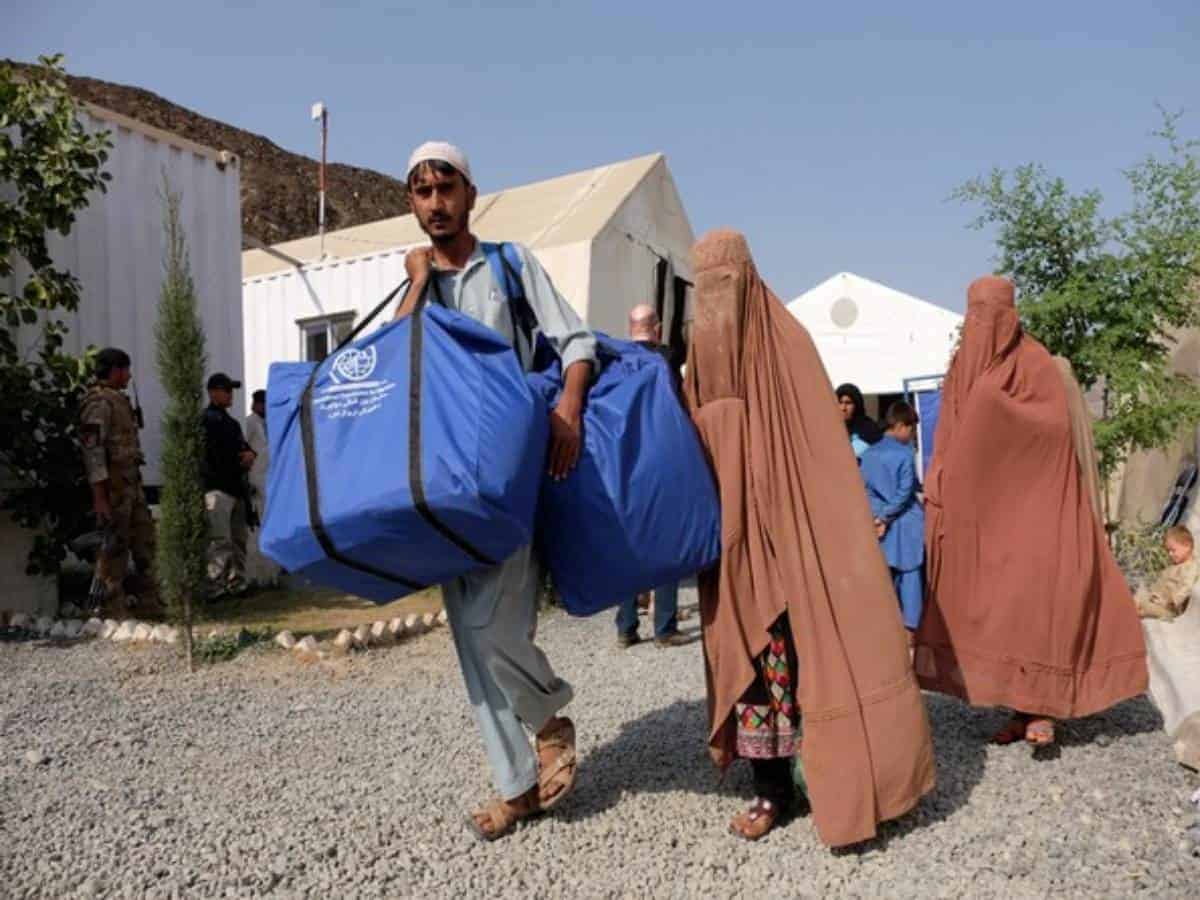Sindh: Afghan refugees, who are living in the abysmal conditions in southern provinces of Pakistan, has demanded the country’s government to provide them money and not COVID-19 vaccines as their camps have not been hit by the virus.
Representatives of Afghan refugees said they had no information regarding an immunisation program. Some claimed the disease had not killed anyone in their camps, raising concerns about a lack of awareness of the virus among the refugee population, Arab News reported.
At least 1.4 million Afghan refugees live in 54 camps across the country, mostly in the northwestern Khyber Pakhtunkhwa and southwestern Balochistan provinces, both of which border Afghanistan. Refugee settlements are also located in large urban centres like Karachi and Islamabad. Islamabad bars them from purchasing property, vehicles, and even SIM cards.
They cannot attend public schools or universities. Hospitals often refuse to admit expectant Afghan mothers because they cannot issue birth certificates to the newborns.
The refugees live each day with the looming threat of being deported to a country they have never set foot in. By most estimates, around a million more immigrants live there without proper documentation. Islamabad bars them from purchasing property, vehicles, and even SIM cards.
They cannot attend public schools or universities.
Hospitals often refuse to admit expectant Afghan mothers because they cannot issue birth certificates to the newborns.
The refugees live each day with the looming threat of being deported to a country they have never set foot in. In 2017, the Human Rights Watch issued a report claiming that Pakistan has turned on the Afghan community. In response to several deadly security incidents and deteriorating political relations between Pakistan and Afghanistan, Pakistani authorities have mounted a concerted campaign to drive Afghans out of the country, the report noted.
“No one has contacted us for vaccinations,” Zahir Pashtun, a youth activist at the New Saranan refugee camp in southwestern Balochistan province, told Arab News.
“I do not think that even one per cent (of refugees) will get the jab,” he said, adding: “Some are even convinced they will die if they get immunised.” Zahir said the virus had not killed anyone in his refugee camp but had severely damaged the financial conditions of the most daily wage labourers in his community, as the virus had wreaked havoc on the economy since last March.
In Pashtun’s camp, a worker said the government should give refugees money instead of vaccinations.

